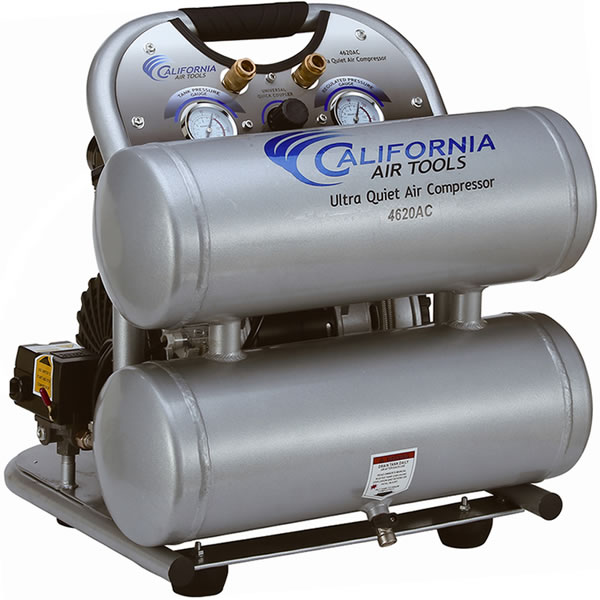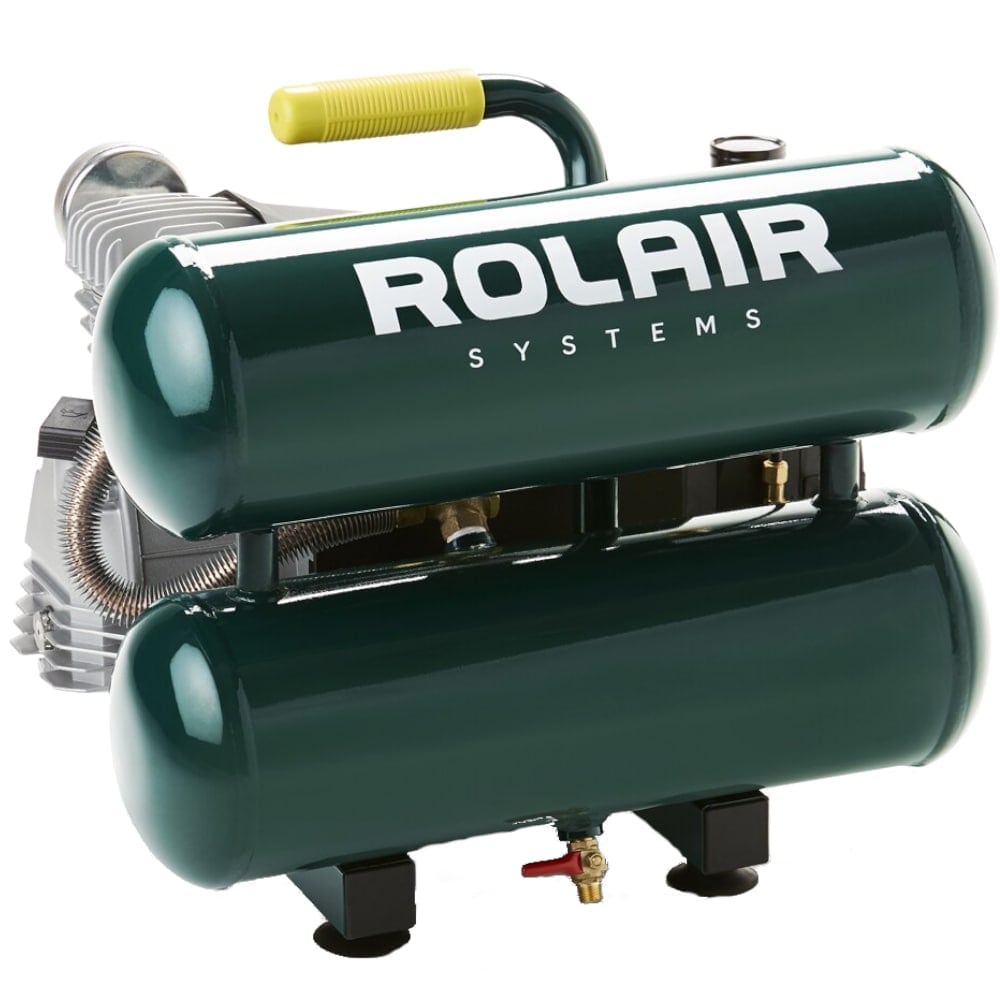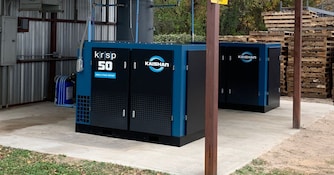
Twin-Stack Air Compressor Buyer's Guide
Twin stack air compressors, also known as double stack air compressors, have two air tanks “stacked” on top of each other.
With two tanks, twin stack compressors can store more air, reducing downtime and allowing for more stable performance across various tools, including brad guns and staplers.
Who Should Buy Twin Stack Air Compressors?
Whether you’re a homeowner taking on weekend projects or a contractor using pneumatic tools daily, you’ll benefit from a twin stack air compressor’s versatile power and reduced downtime.
Twin stack compressors can comfortably handle nail guns, paint sprayers, drillers, sanders, and other high-demand tools that require a steady, ample supply of compressed air.

Twin Stack Features to Consider
When shopping for a twin stack air compressor, keep the following features in mind.
Power Type
Twin stack compressors come in either gas-powered or electric models.
Most electric twin stack compressors are lighter weight, can be plugged into a normal 120-volt household outlet, and can be used inside. Gas-powered twin stack compressors provide more power but will weigh more due to the engine.
Airflow & Pressure Needs
Make sure your twin stack compressor can handle the airflow (CFM) and pressure (PSI) requirements of the most demanding tool you'll be using. Check the tool owner’s manual for this information.
On commercial job sites where more than one person uses air tools, choose a compressor that can handle the CFM of all the air tools being used simultaneously.
Note that CFM and PSI go together. Compressors will produce airflow at a certain pressure, so you need to ensure the compressor’s PSI output is rated high enough for the tool’s needs.
Tank Size
The larger the tank size, the less often your compressor will need to run to keep a supply of air in the tank, which translates to less downtime on whatever job you're doing.
Of course, the tank size you select should be based on the tools you’ll be running and application. While using nail guns for short bursts at a time might warrant a smaller tank, using a paint sprayer for long stretches will definitely benefit from a larger tank. Keep in mind that a larger tank will add weight and take up more space on the jobsite/in storage.

Dual Air Outlets
Many twin stack compressors are equipped with dual air outlets, allowing you to run two air tools simultaneously.
This is especially useful on professional job sites. For example, you can have two carpenters framing at the same time with the same compressor, cutting your equipment expenses in half.
Noise
You no longer need to settle for a loud air compressor. Manufacturers are improving their quiet models every year, and twin stack compressors are no exception.
Quiet air compressors are a game-changer for homeowners who want to work in the garage while family and neighbors are relaxing. They’re also great on job sites for protecting your workers’ hearing.
Look for silent technology models to cut down on noise. Electric compressors will be quieter than gas models because they don’t have an engine. Learn more about finding a quiet air compressor.
Oiled vs Oil Free Piston Compressors
Traditional twin stack air compressors use oil for lubrication, which is fine as long as you’re not using the air compressor for painting or other sensitive applications that require clean air. They tend to come in higher airflow models than oil-free types
Oil-free compressors are coated in special friction-reducing chemicals. They require less maintenance and provide cleaner, dryer air. Learn more about the differences between oil and oil-free air compressors.
Roll Cage
For heavy-duty protection, get a twin stack compressor with a roll cage. Just like an off-road vehicle, this protective steel cage protects the compressor from sharp turns in the bed of a pickup truck.





